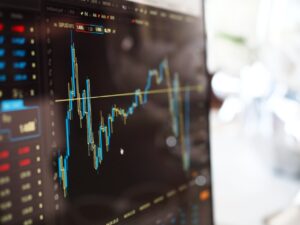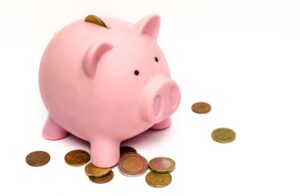
He who never made a mistake…
never made anything.
You could read all you can about the share market but investors will from time to time go against their better judgement and invest in something because of greed or it is something they are interested in. I have lost money in the past from some of my investments.
Here is a sample:
Air New Zealand (early 2000s)
This company I thought was a reasonably safe investment. Air New Zealand was once owned by the government but it was privatized during the late 1980s or 90s. However, the company almost went under during 2001 I think it was when their shares dropped to 14 cents each from about $1.50. The government bailed them out and still owns about 51% of the company. During covid, the government bailed them out again after the border closures placed them in a financially precarious situation.
Lombard Finance L.T.D
This was one of those finance companies which offered higher interest rates than the banks for fixed term accounts. Lombard as it turned out had too much money tied up in too few projects and when one of their creditors folded it brought Lombard down with them. It lent money to property developers. Lombard Finance collapsed in 2008
Provincial Finance L.T.D
This company lent money for consumable items such as cars etc. It, like Lombard, offered higher interest rates for fixed term than the high street banks. It was also a victim of the Global Financial Crisis.
Dominion Finance L.T.D
Another finance company which fell victim to the Global Financial Crisis. It too offered higher fixed term rates than the banks were offering.
Must be a lesson there somewhere.
These were by no means the only finance companies which went belly up during the G.F.C; South Canterbury Finance and Hanover Finance were high profile collapses.
Some investors lost their entire life savings in Hanover FInance.
That is a classic case of putting all your eggs in the one basket; a crucial mistake which affected how some folk will live during their retirement years.
Greed sometimes over rules better judgement.
We sometimes hear stories of young folk who have bought xxx stock in xxx company which has risen in value by a ridiculous amount. This type of rise is not sustainable and it is only a matter of time before the rising share value slows or in some cases takes a spectacular dive.
I mentioned young folk because they do not have the past experience of older investors.
It has to be said that those who have made the most investment mistakes are likely to be in a better financial situation than those who played it safe all their lives and just kept their money in low interest accounts. Certainly better than those who are spenders rather than savers.
The bottom line is that it pays to diversify and spread your risk but the level of risk one takes is dependent on a person’s age because younger people have more time to recover from financial mistakes.
A lot of people cannot stomach the thought of losing a few grand on their investments yet would have problem frittering that money on lottery tickets, cigarettes, or booze. In order to achieve more favourable financial outcomes it is important to do a stock take of your outgoings (spending) and transfer money which would otherwise have been wasted into something more profitable. This could be starting an internet-based business, investments, or upskilling.
During the 1987 sharemarket crash thousands of investors lost fortunes. Many of them borrowed money using the value of their shares as collateral and the rising share prices meant that they were able to borrow more money. The collapse of the markets left investors with shares which were worth less than the value of the loans taken out to purchase them. The lesson here is to never borrow money for shares.
Here is a quote from the Auckland City mayor concerning debt levels. “Capacity to borrow is not the issue. It’s the capacity to pay it back.”
The other lesson is that it may be better to invest in upskilling. It never hurts to add another string to your bow.
This article is the result of the writer’s experience and opinion and not considered as financial advice. If you require qualified financial advice see your bank manager or financial advisor.
www.robertastewart.com
















